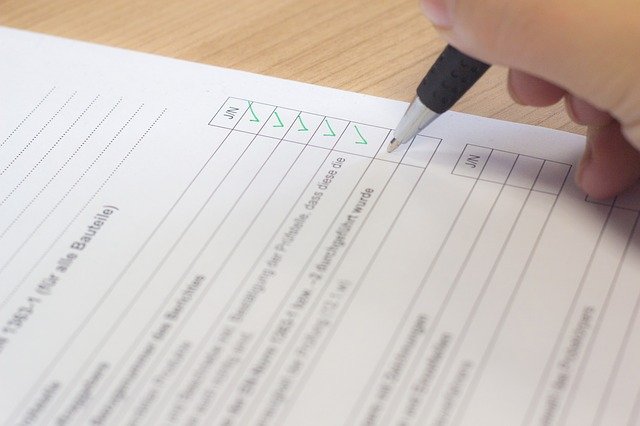On May 22, 2021, there was a large Anatel inspection with the distributors of telecommunications equipment to seal and seize unapproved and uncertified equipment in seven states.
The inspection team has so far counted 10,225 irregular products sealed and seized. The work was carried out with a focus on network products, such as: restricted radiation transceivers, antennas, IP phones and network cables.
The objective of the operation was to curb irregular marketing by distribution companies, suppliers and importers. To carry out the inspection, a coordination room was set up in Brasilia and another in São Paulo.
The operation involved 78 agency servers. The work of the inspectors began at 8:30 this morning and continued until the end of the day.
Want to understand more about it? See how Anatel Certification works and follow the content we've prepared for you below!
What does Anatel oversee?
To understand the importance of Anatel's supervision, we must first explain its main attributions and objectives. Therefore, pay close attention to the information below, as it is indispensable to all companies in the technology industry.
In a case, Anatel is the regulatory body of Brazil's telecommunications system. It is an independent government authority, whose purpose is to monitor, regulate and guide the processes of the segment.
So, we can say that Anatel works with financial autonomy and without any connection with government departments.
Its activities focus on supervising, regulating and granting everything related to telecommunications in the national territory. Among its functions, it is worth mentioning the homologation of electronic communication products.
This means that before they can market technology and information products to the end consumer, organizations must submit these items to validation processes and achieve Anatel certification.
Why is Anatel surveillance important?

Wires, cables and all products using advanced technology need to be approved by the agency.
This is essential to ensure the safety and quality of items that reach the final consumer, and that use them frequently in their day to day. Here are other factors that reinforce its importance:
- legal obligation: companies operating in the telecommunications industry should know that certification has a legal basis. If its products are not approved, the organization will be subject to fines, as well as its customers;
- competitive differential: even with legal obligation, it is smart to use certification as part of the marketing strategy. This shows consumers that the company is trustworthy and cares about the integrity of its products as well as its customers;
- quality and safety indicator: marketing products approved by Anatel means ensuring their quality for the market. Therefore, this adds value to the brand.
How does Anatel surveillance work?
The inspection encompasses the process of obtaining and verifying information about possible unregulated products, in order to verify whether or not there was actually compliance with the legal obligations of telecommunications items.
The agency carries out periodic inspection operations throughout the national territory, in addition to the actions filed by anonymous complaints.
How did Anatel decide to oversee distributors?
Anatel's decision to supervise these distributors had as its starting point several complaints received.
In recent months, the Agency has received complaints from associations and manufacturers of telecommunications products concerning the marketing of non-certified products.
After verifying the consistency of these complaints, Anatel teams went out on the field to inspect 30 addresses, including warehouses and offices, of the major equipment distributors in the country located in 14 municipalities in seven states.
The Agency's simultaneous action was carried out in seven states: São Paulo, Rio Grande do Sul, Santa Catarina, Paraná, Mato Grosso, Minas Gerais and Bahia.
In the cases of Paraná and Santa Catarina, the inspection was carried out in conjunction with the Internal Revenue Service. The Irs already operates in ports and airports to check imported telecommunications products.
What are the benefits of Anatel surveillance?

Technological products, when not regulated, can bring risks to the health of the population, because they use low quality materials and have not undergone mechanical, electrical tests and do not respect the limits of electromagnetic radiation.
Combating the marketing of non-certified products also contributes to fair competition in the telecommunications products market between manufacturers, distributors, suppliers and importers.
The superintendent of supervision of Anatel, Juliano Stanzani, considered positive the action and evaluated that: "Anatel, in this way, signals to society and to the market of manufacturers, distributors and importers that it is attentive to this matter and will take steps to curb the marketing of telecommunications products without proper certification".
The superintendent also said that "there is a forecast to repeat this type of action throughout the year." The Agency will initiate administrative proceedings that could result in fines for these companies.
The centralized coordination of the operation was carried out by the regional manager of Goiás, Mato Grosso, Mato Grosso do Sul and Tocantins, José Afonso Cosmo Júnior, who explained that "the equipment was sealed and can be destroyed by the Agency".
Conclusion
As you can see, Anatel inspection is an essential procedure to ensure the quality and safety of electronic products marketed in Brazil.
Therefore, all companies that operate in this segment need to submit their merchandise to this evaluation. Otherwise, you may have your business interrupted by the regulatory authority.
To begin the certification process, the company must contact a Designated Certification Body (OCD).) Such institutions are responsible for conducting and guiding the brand throughout the regulatory process.
